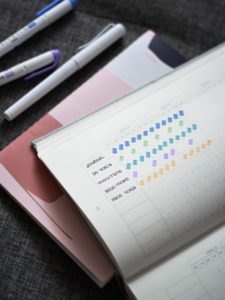So many of us are walking around like a bunch of coffee fueled zombies, always talking about how tired and unable to focus we are, yet we overlook the simplest remedy: SLEEP! Oh Sure, we know that sleeping more and/or better will help, but we’re so caught up in our bad habits that adopting a better sleep routine can seem daunting. Or maybe you’re open to trying to get a better night’s sleep but don’t know where to start, that’s where this article comes in. I’m offering up a bunch of strategies to get a more restful night of sleep that will translate into better performance across the board during your waking hours. I’m not a strong sleeper myself and have struggled with insomnia for years so I’m sharing what has worked for me and my clients as well as a few tips that I have not yet tried but heard good things. In any case there are tips on this list that you can start using today to get a better nights sleep.
I think its very important to first understand the significance of sleep. Getting a good night of sleep is not just suggested, its NECESSARY if you want to be better in just about anything. If you’re having trouble following through on your goals or the things you know you SHOULD do, then check your sleep, because the part of your brain that regulates your will power is dependent on the rejuvenation process that comes with a restful night of sleep. Don’t believe me? Then the next time you have a good night of sleep see how your day plays out compared to when you don’t have a good nights rest. I’d bet that resisting that donut is much easier when you’re well rested compared to when you’re sleep deprived. And this is not only because your body is searching for quick sources of fuel found in processed sugary foods or coffee, but its also because the energy required for exercising will power is diminished if you don’t get a good nights sleep.
Here are some areas where you’ll see improvement if you start taking your sleep seriously:
- Less stressed out – You will experience less stress when you are well rested, and be better able to cope with stress in general
- Less inflammation in the body – Stress hormones increase with lack of sleep and stress causes inflammation
- More alert and energized during your waking hours
- Improved memory/focus/concentration – The brain fog that arises due to lack of sleep inhibits your ability to process and recall information for later use, and to focus on tasks
- May help with your weight loss – Proper nights sleep will help regulate the hormones that tell you when you are still hungry or when you are satisfied, people who sleep poorly are more apt not only to eat more but to eat poor quality of food
- Body is able to repair itself – After hard workout sessions, or environmental stress, injury etc your body needs time to repair itself, this is done during your sleeping hours
- Better athletic performance
- Better immune function – People who get adequate restful sleep are sick less often and their bodies are better equipped to fight infections and sickness
- Healthy heart – Blood pressure goes down during sleep giving your heart a much needed rest
- Better overall mood
I hope this list has convinced you of how important sleep is if you didn’t already know. Now on to the tips that can help you sleep better. Let the sleep hacking begin:
Tip #1 GO TO BED EARLIER
For some (myself included) going to bed earlier can be just as hard as getting up early. I love to stay up watching just “one more show” even though I know that I’ll regret it in the morning. But the benefits of going to bed earlier are so amazing for me that I do my best to stick to a decent bed time. If you have to get up early in the morning than be sure to allow yourself at least 7 hours of sleep and adjust your bedtime. Also, because we have an internal 24 hour clock that dictates our sleeping and waking cycle known as the circadian rhythm, this means when we sleep is just as important as how long we sleep. Eight hours of sleep between 10pm – 6am will be better quality than 8 hours of sleep between 2am – 10am. Going to bed earlier was the biggest game changer for me.
Tip #2 REDUCE EXPOSURE TO BLUE LIGHT
Excessive exposure to the blue lights emitted from the many screens we use has been linked to increased blood pressure, obesity and bipolar disorder in kids. It also messes with your circadian rhythm by stimulating your brain to think it should still be in a wakeful state. Blue light is not all bad though, after all the sun emits blue light as well, and when you get enough sunlight during the day it promotes a healthy circadian rhythm, the problem really is being exposed to those man made blue lights when we’re supposed to be getting ready for bed, so stop using your electronic devices at least 2 hours before sleep. Try reading a book instead. If you really can’t put down your device at night then you may want to invest in a pair of Bluelight glasses, something I will be buying and reviewing at a later date because I will admit I have a hard time putting my smartphone away before bed.
Tip # 3 SLEEP IN A DARK ROOM
It’s not just the blue light that can keep us up, any light can hinder a good nights sleep so you may want to invest in black out curtains or a good sleep mask.
Tip # 4 REDUCE EMF EXPOSURE
Electromagnetic frequencies emitted from electronic devices can influence brain activity during sleep and thus affect the quality of your sleep. To reduce this you should keep your phones in another room while sleeping (or at least on airplane mode), unplug all electronic devices in your room, and unplug your modem at night. Honestly, even during your waking hours you should be mindful of your EMF exposure. Keep your phone on airplane mode as much as possible. Use the speaker function rather than having the phone on your ear while taking calls and don’t keep your phone close to your body if its not on airplane mode (such as in your pocket or your bra).
Tip # 5 QUIET YOUR MIND
If you have trouble getting to sleep because your mind is racing, try writing in a journal to get all of those thoughts, concerns or things to do for tomorrow out of your system, or you may rob yourself of precious sleeping hours in attempt to “remember everything”. Keep a pen and pad close to your bed so you can jot things down as they come up. You can also use breathing techniques to relax and calm your mind. Check out my post on breathing exercises here. Light stretching or a gentle yoga session for 5-10 minutes before you sleep can also help to quiet your mind and relax you. The mind body connection is as such that if you relax one the other usually follows suit. You can also read, or meditate. Even better, string all or a few of these activities together and you’ve got yourself a night time ritual that can help you get into “sleep mode” by mentally associating the performing of these activities with bed time.
Tip # 6 INVEST IN A COMFORTABLE MATTRESS
Being uncomfortable while you sleep can be the source of waking up often or just having bad quality of sleep. Since we spend 1/3rd of our lives in bed it only makes sense to invest in a mattress that will promote a good night of sleep. Look into mattresses made with organic materials because regular mattresses are often made with chemicals that seep out and can affect our health and well being. A mattress is a big investment so if the budget doesn’t allow it right now then you can start with a mattress topper, which is less expensive but can give you the comfort you need. Or you can also just start with getting more comfortable pillows for the time being.
Tip # 7 DE-CLUTTER YOUR ROOM
This is one of my favourites because it seems almost magical as to how simply cleaning your environment can make you feel better mentally and emotionally. A cluttered space is a cluttered mind, and a cluttered mind will have a hard time falling asleep. An untidy bedroom can be a source of anxiety that we aren’t even aware is stemming from the fact that our sleep environment is not neat and tidy. Removing all those dust bunnies from your room will also allow you to breathe better while you sleep which will contribute to more restful slumber.
Tip # 8 DON’T EAT RIGHT BEFORE BED
Eating a big meal and/or highly processed sugary foods before bed can affect your sleep quality. Eat your dinner no later than 2-3 hours before bed and if you do need a snack to help you sleep choose something that is natural (not processed) such as a lean piece of protein, fresh fruit or veggies or a green shake.
Tip # 9 ENGAGE IN A LIFESTYLE THAT SUPPORTS HEALTHY SLEEP
If you want healthy sleep engage in physical activity everyday, which can be as simple as brisk walking or as demanding as long distance running. Spend time outdoors daily. Apparently coming into direct contact with the earth/ground outside can offset some of the effects of exposure to EMF. This concept is known as “grounding” or “earthing”. You also need to drink plenty of water, and eat a diet abundant in fresh veggies (don’t forget your green ones) and fruits, lean protein, nuts, seeds, whole grains and low in processed foods with added sugar and salt. Don’t have caffeine less than 6 hours before bed time.
Tip #10 SUPPLEMENTS
There are many supplements out there that can help you fall asleep and stay asleep by promoting relaxation within your body. you can find any of these items at your grocery store or a health food store: L-Thianine (amino acid), Valerian Root (herb), Vitamin D (vitamin), Magnesium (mineral), Melatonin (hormone). Although if you feel you need to use melatonin it may be worth investigating why your pineal gland is not producing enough of its own melatonin in the first place. Also, I just want to clarify that I am not suggesting you use all of the above supplements, maybe try one at a time and evaluate its effectiveness.
There are so many things that can affect your quality of sleep such as having a legitimate sleep disorder that may need to be diagnosed by a professional, temperature in your room, chronic pain, shift work and more. So it would be wise to first try to determine the cause of your fractured sleep. If you are unsure of why then you can start with some of the tips on this list. Feel to reach out to me if you have any questions about the above tips! Happy Sleeping!




